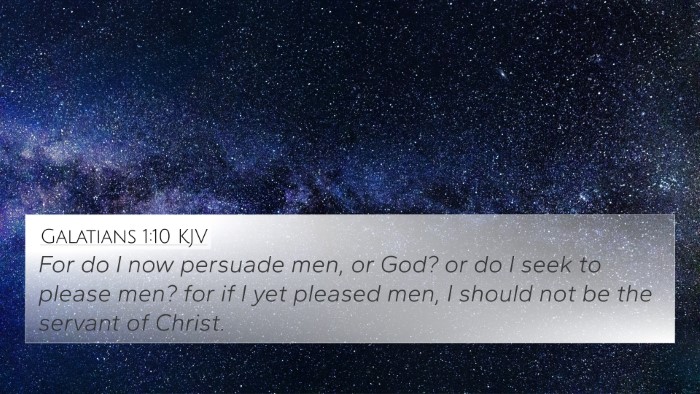Understanding Matthew 6:24
Matthew 6:24 states: "No one can serve two masters. For either he will hate the one and love the other, or he will be devoted to the one and despise the other. You cannot serve God and money."
This verse encapsulates a fundamental principle of loyalty and commitment in the Christian faith. Through a synthesis of insights from noted public domain commentaries, we can derive several layers of meaning surrounding this profound teaching of Jesus Christ.
Thematic Analysis
The core idea of Matthew 6:24 revolves around the impossibility of serving two distinct masters, particularly the dichotomy of spiritual versus material allegiance. Jesus is clearly stating that one’s loyalty cannot be divided between God and wealth (often referred to as ‘mammon’ in the original text).
Insights from Commentaries
-
Matthew Henry:
Henry emphasizes that serving money leads to moral decay and spiritual downfall. He elucidates that loyalty to wealth can engender greed and sin, ultimately leading one away from divine purpose.
-
Albert Barnes:
Barnes expounds that this verse highlights the necessity of choosing priorities in life. He notes that the nature of one’s master will dictate behavior, ethics, and choices. A person devoted to God will naturally prioritize spiritual matters over material gain.
-
Adam Clarke:
Clarke focuses on the implications of this servitude. He describes how people who serve money often find themselves entrapped by it, losing their true freedom. Clarke stresses that the heart of this teaching is to guide believers towards true treasure, which is found in relationship with God.
Cross-References for Matthew 6:24
Several scriptures echo the sentiments expressed in Matthew 6:24, providing additional depth and a framework for understanding spiritual loyalty:
- Luke 16:13: Similar teaching about serving God or money.
- 1 Timothy 6:10: The love of money is a root of all kinds of evil.
- James 4:4: Friendship with the world is enmity with God.
- Proverbs 11:28: Whoever trusts in riches will fall.
- Matthew 19:21: Jesus calls a rich young man to give up his wealth.
- Hebrews 13:5: Keep your life free from the love of money and be content.
- Colossians 3:2: Set your minds on things above, not on earthly things.
- 1 John 2:15-17: Do not love the world or the things in the world.
Historical Context
Understanding the cultural context during Jesus’ teaching is crucial. In first-century Judea, wealth was often seen as a sign of God’s blessing, resulting in diverse interpretations of wealth and spirituality. Jesus flips this notion by juxtaposing God’s kingdom against material wealth, compelling believers to reevaluate their priorities and allegiances.
Practical Application
The application of Matthew 6:24 extends beyond understanding its meaning; it calls for introspection regarding our own master. Questions to consider include:
- What do I prioritize in my daily life—spiritual vs. material pursuits?
- Am I compromising my values to achieve financial success?
- How can I enhance my devotion to God in practical terms?
Further Reflections
This verse invokes a dialogue about the nature of devotion. Just as Jesus used common cultural references to create a relatable teaching, we too can draw parallels in modern life. For instance, social media, technology, and various distractions can act as competing masters.
Conclusion
In summary, Matthew 6:24 challenges us to reflect on our loyalties—calling attention to where our hearts truly lie. Through examining biblical cross-references and understanding the historical context, we gain a comprehensive biblical perspective on serving God versus serving money, encouraging us to seek true value and purpose in spiritual devotion.
SEO Keywords Utilization
This analysis can be classified under numerous bibliographic frameworks, offering insights into bible verse cross-references and connections between Bible verses. Utilizing tools for bible cross-referencing and employing a bible concordance can aid individuals in exploring bible verses that relate to each other, enabling richer comprehension of faith-based themes. Comprehensive bible cross-reference materials enhance one's ability to discern thematic bible verse connections and facilitate deeper comparative bible verse analysis.





















